Iranian Regime Agents Threaten Iranians In Canada: CBC
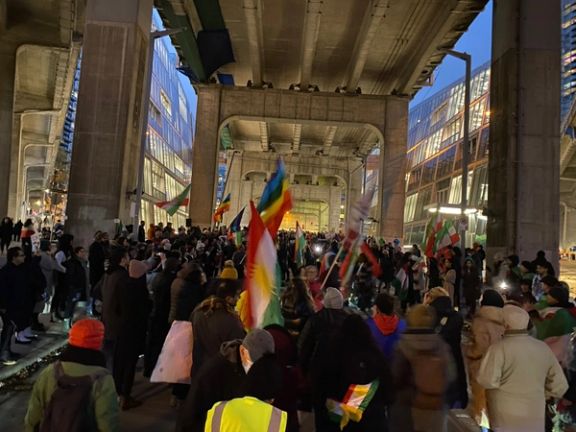
CBC Canada has reported that an increasing number of Iranians living in Canada have expressed their concern that they are being followed and threatened by regime agents.

CBC Canada has reported that an increasing number of Iranians living in Canada have expressed their concern that they are being followed and threatened by regime agents.
Based on the report, elements of the Islamic Republic living in Canada have threatened Iranians, monitored them, and even chased them to their homes after demonstrations in Canadian cities.
The activists told CBC they have had no help from Canadian police or government officials and do not feel like the threat is being taken seriously.
The report also added that the agents of the Islamic Republic have threatened Iranian Canadians through calls and text messages to cell phone numbers that were supposed to be private.
The messages warned them to stop posting on social media and speaking out about Iran.
Canadian Security Intelligence Service (CSIS) had earlier acknowledged that they are monitoring the situation, announcing for the first-time last Friday they are investigating “several threats to life emanating from the Islamic Republic of Iran.”
CBC said last Friday that Canadian Security Intelligence Service was aware that some state agents of the Islamic Republic are “monitoring and intimidating” people inside Canada to silence those who speak against the regime.
Since popular protests started against Iran’s clerical regime, activists and Iranians living in Canada have held large gatherings and demonstrations in Canadian cities in solidarity with the protesters inside the country.
Meanwhile, many activists are preparing various lists of people affiliated with the Islamic Republic and living in Canada to present to the authorities.
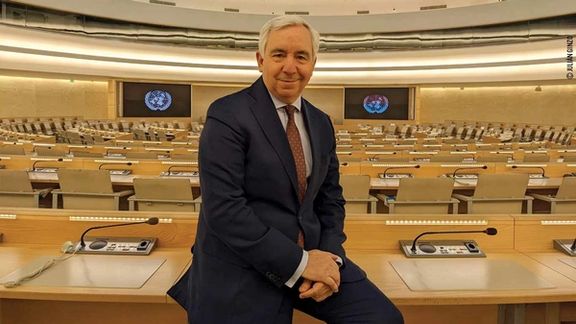
The UN Human Rights Council president says he believes that the newly established fact-finding mission on Iran can make a difference.
In an interview with CNN International, Federico Villegas of Argentina said Friday that the newly created fact-finding mission to investigate alleged human rights violations in Iran “can make a difference,” and expressed hope that Iran will cooperate.
During the special session on Iran Thursday, the President of the Human Rights Council had noted that it is a multilateral and democratic body where differences of opinion are legitimate, raising hope that the Islamic Republic would cooperate to carry out the mission.
“I think that at one moment or another they will realize that the Iranians across the world are asking for change and their demands for change are directly linked to human rights because they would like to see a different situation in their country in relation to human rights,” Villegas told CNN’s anchor Becky Anderson.
He went on to say that the UN Human Rights Council for the first time established a special team to run an independent investigation into the violations that are being committed on a daily basis in Iran.
The UN Human Rights Council voted Thursday to launch an independent investigation into Iran's deadly repression of protests, that has killed over 450 civilians.
The motion passed with 25 votes in favor, six opposed and 16 countries abstaining amid cheers of activists amid an intensifying crackdown in Kurdish areas of western Iran over recent days.
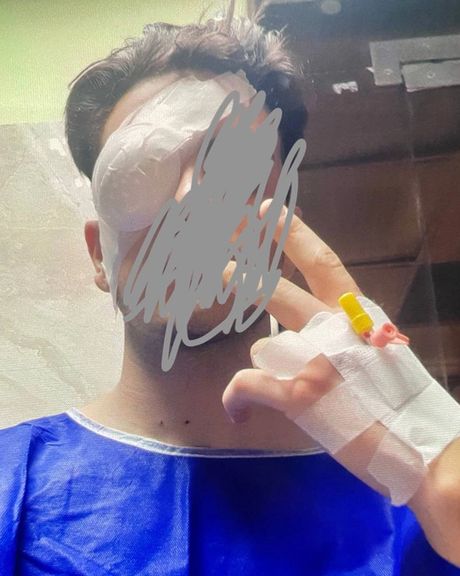
Dozens of ophthalmologists have warned against the use of shotgun ‘birdshots’ and other projectiles by Iran’s security forces that have blinded over 500 protesters since mid-September.
In a letter issued on Friday, a group of about 140 ophthalmologists said that a large number of protesters have been taken to medical centers hit by rubber bullets and metal pellets as well as paintball bullets in their eyes, leading to the loss of eyesight in one or both eyes.
Last week, another group of 230 ophthalmologists issued a similar letter warning about the loss of eyesight among protesters.
The Islamic Republic, which had been previously condemned for blinding protesters in the streets and has intensified the use of guns, including military weapons against unarmed protesters.

In an article on November 19, The New York Times cited ophthalmologists of three hospitals in the capital Tehran – namely Farabi, Rasoul Akram and Labbafinezhad -- and several doctors in Kordestan province, as saying that about 580 protesters suffered serious eye injuries during the regime’s crackdown.
The full scope of mass eye injuries has been largely concealed due to the internet blackout, but medical evidence given to The Times by doctors, protesters, family members of patients and rights groups revealed that ophthalmology wards in hospitals have been overwhelmed with eye injury victims. The range of injuries included mutilated retinas, severed optic nerves and punctured irises.
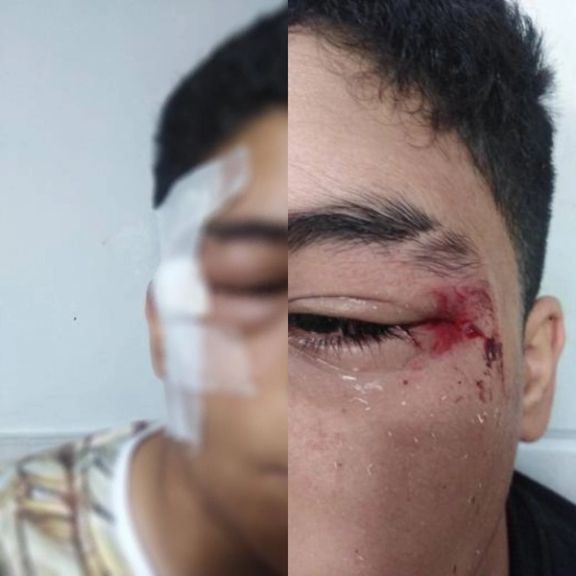
The regime’s security forces have been extensively using cartridges of shotshell loaded with numerous small balls or birdshots, or medium-sized buckshots as well as single large solid projectiles known as a slug to quash the protests across the country.
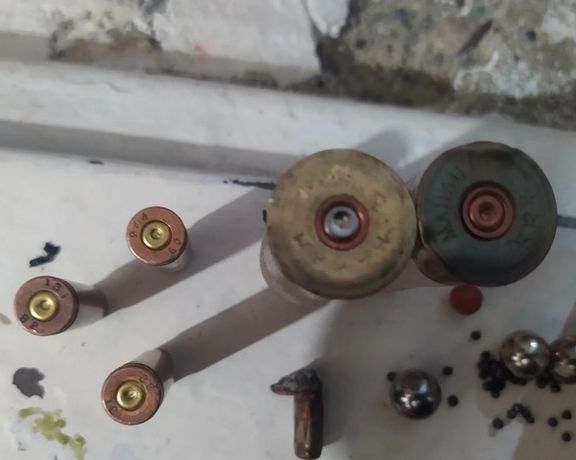
In an investigative report published on Friday, FRANCE 24 found evidence that shotgun cartridges manufactured by French-Italian manufacturer Cheddite have been widely used against Iranian protesters, an apparent violation of EU sanctions that went into place in 2012.
The team analyzed more than 100 photos and videos showing teargas canisters, rifle bullets, paintball projectiles and cartridges from shotguns. While most of the shotgun shells photographed were made in Iran, 13 shells recovered from eight different Iranian cities bore Cheddite logos from factories in Italy and France. The company claims to be the world’s largest maker of empty shotgun cartridges and firing caps, producing more than a billion empty cartridges every year.
Nicholas Marsh, a senior researcher at the Peace Research Institute Oslo (PRIO), told FRANCE 24 about Iran that "The regulation currently in force states that it is not allowed to sell shotguns of any type, ammunition designed for them and associated components. The restriction on firearms was added in an amendment on 24 March 2012. Since then, shotguns and their ammunition have been covered by the EU sanctions, and the sanctions are still in effect." The agency also quoted Amnesty International's researcher on arms control and human rights, Patrick Wilcken, as saying that “Cheddite has a responsibility to respect human rights; it should carry out human rights due diligence on its entire value chain and should cease supplies if there is a risk of goods being diverted into hands of serial human rights violators…”
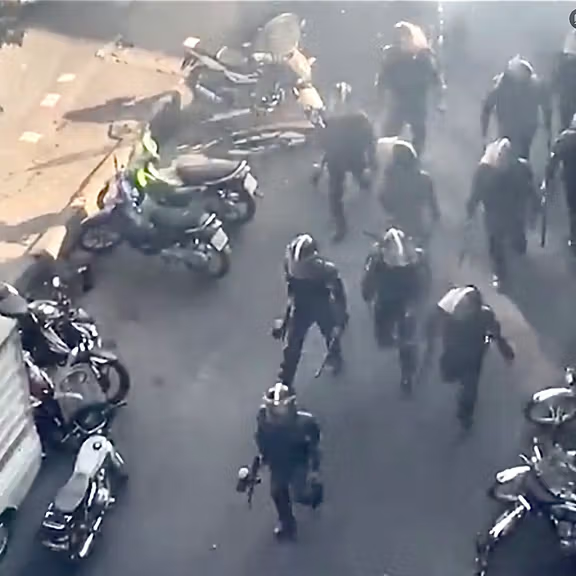
Iranian human rights activists monitoring the situation say the number of people killed in nationwide protests has risen to at least 448 as of Friday, November 25.
The US-based Human Rights Activists News Agency (HRANA) announced in its latest report that from September 16 until Friday, November 25, at least 448 protestors have been killed, of which 63 were minors.
While the Islamic Republic has not provided accurate figures of those detained in the protests, the watchdog went on to say that at least 18,170 protesters have been arrested including 565 students.
HRANA added that156 cities and more than 140 universities across Iran have also been the scenes of anti-government protests.
The group added that 3,234 of the arrested protesters have been identified, saying that 110 are minors.
Meanwhile, “Kurdistan Human Rights Network”, which is a France-based independent organization said at least 104 Kurdish citizens were killed in nationwide protests until Friday, November 25.
The United Nations Human Rights Council on Thursday adopted a resolution based on which an international panel will be formed to investigate the violence against protesters in Iran.
The members of the fact-finding panel will be appointed by the President of the United Nations Human Rights Council, and its mission is to investigate human rights violations since the beginning of Iran's nationwide protests and document the role of its perpetrators.
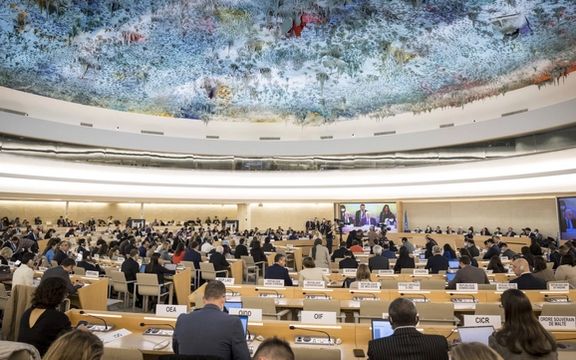
The UN Human Rights Council voted Thursday to launch an independent investigation into Iran's deadly repression of protests, that has killed around 400 civilians.
The motion passed with 25 votes in favor, six opposed and 16 countries abstaining amid cheers of activists amid an intensifying crackdown in Kurdish areas of western Iran over recent days.
The mission will collect evidence into abuses during the authorities' deadly crackdown. Evidence assembled by a mission appointed by the same council was later used for the prosecution of a Syrian ex-officer in Germany who was accused of war crimes.
US Secretary of State Antony Blinken welcomed the vote.
"Today's session leaves no doubt that the HRC's membership recognizes the gravity of the situation in Iran, and the fact-finding mission established today will help ensure that those engaged in the ongoing violent suppression of Iranian people are identified and their actions documented," he said in a statement.
The United States has sanctioned three Iranian security officials over the crackdown.
During his opening remarks, UN High Commissioner for Human Rights Volker Turk provided a review of what has been happening since mid-September, when Mahsa (Jina) Amini was killed in custody of the country’s ‘morality or hijab police’, igniting a nationwide uprising against the regime.
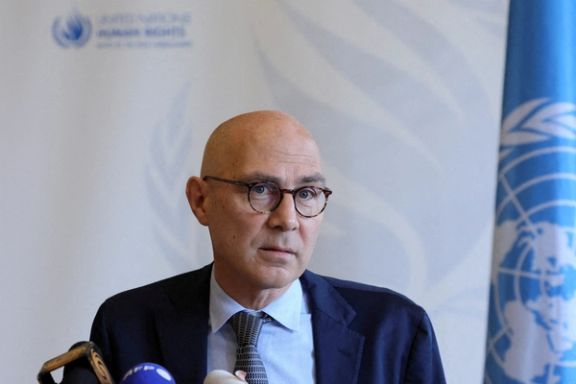
The 35th special session of the Human Rights Council was held following an official request submitted on November 11 by Germany and Iceland, as well as the support by over 40 other states.
Turk decried the killing of protesters and lack of accountability for the perpetrators of atrocities. He also expressed concern over "unnecessary and disproportionate" use of force against protesters and the high number of arrests as well as the death sentences handed to protesters.
"The old methods and the fortress mentality of those who wield power simply don't work. In fact, they only aggravate the situation. We are now in a full-fledged human rights crisis," Turk said, adding, "The unnecessary and disproportionate use of force must come to an end. I urge the government and those in power to listen.”
He also criticized the Islamic Republic for seeking to delegitimize the protesters and label them as agents of enemies and foreign states, adding that "That's a convenient narrative. As we have seen throughout history, it's the typical narrative of tyranny."
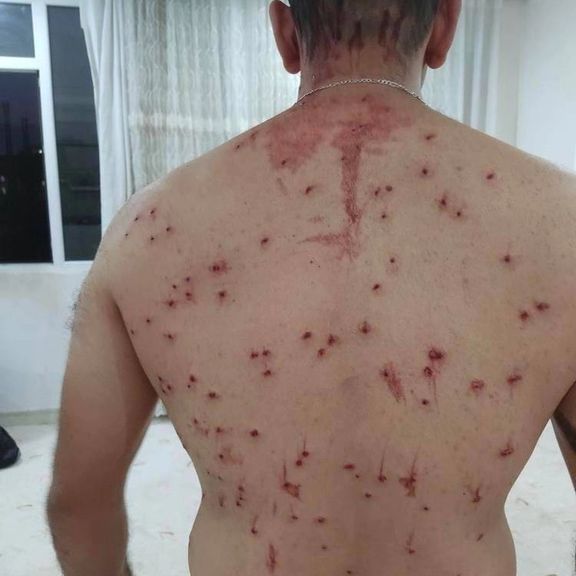
Javaid Rehman, the Special Rapporteur on the human rights situation in Iran, was next to take the floor and speak about the grim situation. "Structural impunity has fueled widespread patterns of unlawful killings, enforced disappearance, torture and other human rights violations in Iran," he said, urging the council to "establish an independent investigative mechanism on Iran."
“Both president and head of judiciary have emphasized the need to act violently without any leniency to protesters," he emphasized.
Rehman urged Iranian authorities “to stop using the death penalty as a tool for political oppression and release peaceful protesters. We have received reports of torture including sexual abuse. Victims' families face harassment and intimidation," he said.
Tehran's representative called the debate disgraceful and appalling, before talking about the human rights situation in other countries such as women in Yemen, Palestine and even the indigenous people of Canada. She then continued with a list of statistics about the number of women in different professions in Iran such as judges and sport coaches, something that seems untrue to the Iranian people on social media.
Tehran’s allies such as Venezuela, Cuba, North Korea and China, sided with the Islamic Republic and expressed their opposition to the session or any resolution against the Islamic Republic.
China tried but failed to pass an amendment to the motion that would have stripped out the main paragraph referring to a new investigative probe into Iran's suppression of mass protests.
The last-minute amendment was rejected with 25 against, six in favor and 15 abstentions.
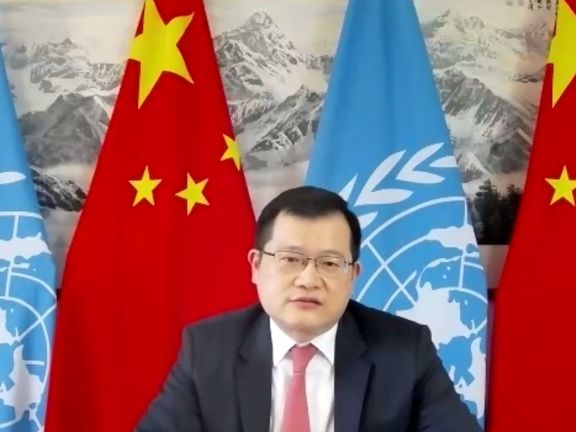
China tried but failed to stop a motion on Iran before the UN Human Rights Council Thursday that would have stripped out the main paragraph referring to a new investigative probe into Iran's suppression of mass protests.
The last-minute amendment was rejected with 25 against, six in favor and 15 abstentions.
China's envoy Jiang Yingfeng told the council that the motion led by Germany was "overwhelmingly critical" of Iran. "It obviously will not help resolve the problem," he added, calling for a key paragraph to be deleted.
The paragraph in question would establish an "international fact-finding mission" that would be operational until early 2024. Iran's representatives also repeatedly criticized the motion which it called "completely biased".
Representatives from the dozens of countries backing the motion, including the United States and Britain, criticized the last-minute change and called for the 47-member Geneva council to vote it down.
"(The amendment) denies the survivors, the families, the victims, the right for their suffering to be recorded," said British Ambassador to the UN in Geneva Simon Manley. The US ambassador for human rights Michele Taylor said she was "appalled" by China's last-minute revision.
Earlier in the day UN officials and dozens of countries and human rights organization backed a probe into Iran's use of force against protesters and the violation of their rights, as well as treatment of women.